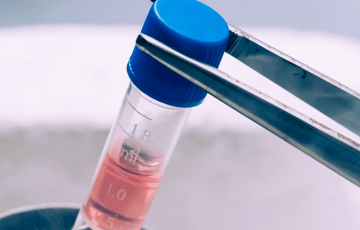Intrauterine insemination, or IUI, can be a helpful procedure for couples who may be experiencing difficulties with getting pregnant. You might also know it as artificial insemination.
What is Intrauterine Insemination (IUI)?
Rather than in traditional conception, IUI is a procedure that involves taking sperm and placing it in a woman’s uterus during ovulation. It is relatively noninvasive and is a cheaper option compared to IVF, or in vitro fertilization. It can be done with either a partner or a donor’s sperm.
It may be recommended for a variety of situations, including:
- Unknown issues with infertility.
- Male infertility.
- Using a sperm donor.
- Mild cases of endometriosis.
- Problems with the cervix or cervical mucus.
- Same-sex couples wanting to conceive.
- Couples wanting to avoid passing genetic defects to a child.
Some cases it should not be used include, but are not limited to:
- When there is moderate to severe endometriosis.
- Blocked fallopian tubes, severe fallopian tube disease, or if the fallopian tubes have been removed.
- Patients with past pelvic infections.
Preparing for IUI
An IUI can be done with or without the aid of medication, and your treatment cycle will depend on whether or not you’re not taking any fertility drugs.
In a natural IUI cycle, no medication is given. In these cases, a woman ovulates as one would naturally, and the sperm is placed at the doctor’s office during the time of ovulation.
Medications such as hCG (human Chorionic Gonadotropin) and clomiphene citrate (Clomid), can be used to help the body mature and ovulate multiple eggs. Going through a medicated IUI cycle is also known as ovulation induction by hormone therapy, controlled ovarian hyperstimulation, and superovulation, amongst other names.
Clomid or Letrozole are oral fertility drugs, whereas Gonadotropins are injectable. In both cases, prior to beginning treatment, you will likely have a blood test and ultrasound to confirm that you are neither pregnant nor have any ovarian cysts.
There are several aspects to keep in mind:
- There will be doctor visits leading up to the IUI. This includes appointments for blood work, ultrasounds, and other medical instruction.
- The drug treatment will begin early in one’s menstrual cycle.
- Your doctor will watch for signs of ovulation.
- The IUI will be scheduled to coincide with ovulation. In some cases, medication is given to trigger ovulation.
It is important to speak with your OB-GYN or fertility specialist to decide what is right for you. Which cycle you decide will depend on why your doctor has recommended IUI and on whether you’re taking fertility drugs.
The sperm also undergoes preparation. If not using a donor, your male partner will provide a semen sample. If a donor is used, the sample will be thawed. Before being placed, the sperm is “washed.” This process removes any impurities leaving just what is needed for conception.
The IUI Procedure
The procedure does not require anesthesia and is often painless.
- It will be done in your fertility clinic. There’s no need to go to a hospital.
- If you’re using a sperm donor, the donor sperm will be thawed and prepared. If not, your partner will come into the clinic that day with you to provide a semen sample.
- You will lie on a gynecological table.
- The sperm will be passed through the cervix and placed into the uterus using a catheter (thin tube). Most women experience little to no discomfort, but you may experience mild cramping.
- The catheter is removed.
- You’ll remain on the table for between 10-30 minutes
- You’re done!
Some practices perform a second insemination the following day. You can also take a pregnancy test two weeks after the IUI procedure.
What’s the success rate of IUI?
The success of IUI depends on several factors. If a couple has the IUI procedure performed each month, success rates may reach as high as 20% per cycle. This depends on variables including female age, the reason for infertility, and whether fertility drugs were used, among other variables.
Here are the estimated success rates of IUI:
- for women under 35: 10-20% chance of pregnancy.
- for women between 35 and 40: 10% chance
- for women 40 and above: 2-5% chance.
If you would like, you can read some patient success stories collected by Healthline.
Need Medications for your IUI cycle?
If you happen to need any of the medications mentioned above, we are here to help. If any medication is used in conjunction with IUI, it is important that it is done so with doctor guidance and supervision. Speak with an OB-GYN or fertility specialist if you think intrauterine insemination may be right for you.




